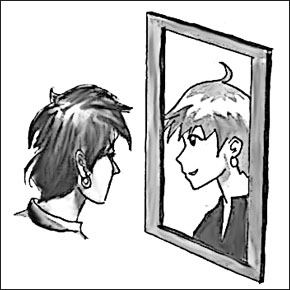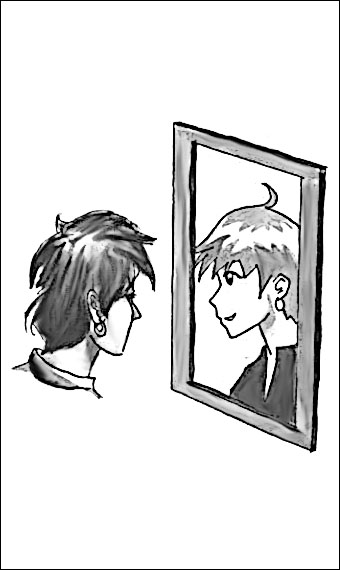

Spiderman. Garfield. Batman. Snoopy. These figures and many others are symbolic of the American comic culture. They have entertained, inspired and enthralled nearly every individual who has grown up with them, and their influence spans entire generations. Yet, a new breed of comics is rising within our midst. Its name is manga.
Manga, the Japanese equivalent of the aforementioned American comics, has manifested its growing presence within the United States with increasing sales over the past years. In an article published on animenewsnetwork.com, the New York Comic Con’s State of the Manga Industry panel reportedly “agreed that [manga publishing] can be described as ‘strong and healthy,’ but past the period of explosive growth that manga saw in 2005 through 2007.”
The passion for manga can be found here at home within the Aragon community. One such embodiment, junior Abigail Clemens, said, “Anytime I got into a Japanese bookstore and start speaking to the people in Japanese asking for comics, it sort of reminds me of how much I really like comics because I’ve come this far to learn the language of something I love.”
Asked about how she began reading manga, she replied, “There was this thing on Toonami called ‘Yu Yu Hakusho.’ One of my brother’s friend really liked that show and he said, ‘Oh, there’s comic books for that show. You should try reading them.’ And then after that, I started buying tons and tons.”
For sophomore Yuki Chin, her inception into manga was comparable. Laughing, she said, “When I was little, I used to think that Manga was for stupid little boys that couldn’t think about anything. But I think I pretty much started with TV shows and animations. I just wanted more of that, looked up stuff online and found manga.”
She added, “I really do like reading books and stuff. I find the profession of writing a really amazing thing. But with manga, you have to make a story and put pictures to it in a way that people will understand. I can respect that a lot. There’s also one really popular manga; its whole plot is about manga authors. After I started reading that I realized how much work goes into it and competition there is in the whole business.”
Clemens, however, expressed a two-fold love of this genre. She said, “For me personally, it’s an outlet … After a hard day or on the weekend, even though I don’t have much time anymore, [I] can kind of go home, read a story that’ very different yet very similar to your own life and it opens up your eyes to random silly things.
“There’s also the whole anime-manga community, so that by itself is sort of an outlet. Because sometimes you’ll be seeing things or thinking things that nobody will really understand, but then if you talk to someone who’s kind of an anime nerd, what people call otaku, there is someone who will get your dorky thoughts.”
The idea of community is reflected how fellow junior Charlotte Braxton came to become a magna enthusiast. She noted, “In ninth grade, I played baritone saxophone and [Clemens] was right behind me … I don’t know how this conversation got started, but we just started talking and I got more into it … Abby really dragged me in a lot more. I wasn’t reading it every day; I wasn’t really into it. I think Abby really got me into Anime Club and Manga Club.”
The aesthetic appeal of the beautifully illustrated scenes is undoubtedly an allure factor manga. As junior James Yi said, “The thing is, I just like how [manga] is drawn. It looks less realistic, but at the same time more realistic. [For example,] most of the people [in American cartoons] have dots for eyes while in manga their eyes are so elaborate. Everything is just in greater detail.”
Yet beyond all else, the love of manga reflects an ability for enthusiasts to relate to the literature as an individual. As Yi added, “The plot and the storyline are usually really good and something that I can relate to. Like with Superman, I can’t fly or shoot laser beams out of my eyes. Manga can explore different aspects of teen life and what troubles they’re going through: bullying, love, studying, everything.”
In the quirky illustrations, texts and characters of manga, one ultimately has the opportunity to find an art form, an escape, a community and, to some degree, yourself. Thus, despite how manga may rub against the grain of traditional American comic culture, it remains to be seen that, regardless, “it opens your eyes to random silly things.”
